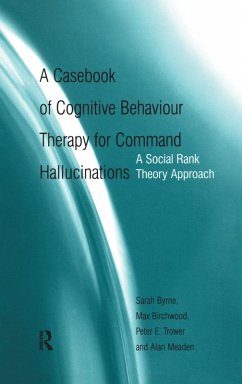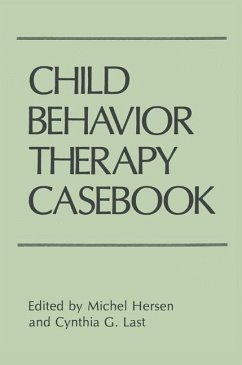Command hallucinations are a particularly distressing and sometimes dangerous type of hallucination about which relatively little is known and for which no evidenced based treatment currently exists. In A Casebook of Cognitive Behaviour Therapy for Command Hallucinations the development of a new and innovative evidence based cognitive therapy is presented in a practical format ideal for the busy practitioner. This new approach is based on over a decade's research on the role of voice hearers' beliefs about the power and omnipotence of their voices and how this drives distress and 'acting on' voices. The therapy protocol is presented in clear steps from formulation to intervention. The body of the book describes its application in eight cases illustrating the breadth of its application, including 'complex' cases. The authors also present their interpretation of what their findings tell us about what works and doesn't work, and suggestions for future developments. Subjects covered also include: understanding command hallucinations a cognitive versus a quasi-neuroleptic approach to CBT in psychosis does CBT for CH work? findings from a randomised controlled trial. This book provides a fascinating and very practical summary of the first intervention to have a major impact on distress and on compliance with command hallucinations. It will be of great interest to all mental health practitioners working with people with psychosis in community and forensic settings.
Hinweis: Dieser Artikel kann nur an eine deutsche Lieferadresse ausgeliefert werden.
Hinweis: Dieser Artikel kann nur an eine deutsche Lieferadresse ausgeliefert werden.








